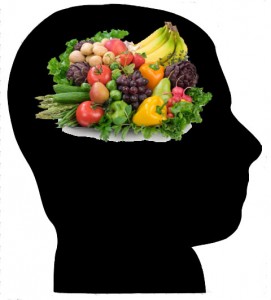
The responses from students to what they consumed for breakfast, was, the convenience of breakfast bars or in the case of many teenagers, no breakfast at all, was an all too common response. Pediatricians and pediatric dietitians have long emphasized that providing children with a healthy breakfast plays a vital role for their nutritional wellbeing. Without a boost to their metabolism at the start of their day, young brains cannot function well. For optimum performance, the brain needs a sufficient supply of healthy fats, proteins, carbohydrates, vitamins, minerals and water. See more at: www.timigustafson.com.
Healthy fats often sound a little worrying. To many of us, fats are just that – fat. However, there are a group of healthy fats that are essential for brain function. Since the brain consists largely of fatty membranes, 60% of the solid matter in the brain is fat. Therefore, for good brain function, the best fats to consume are polyunsaturated fats, such as omega-3 oils from fish, nuts, seeds and dark leafy greens. These fats help to maintain cell function and provide energy for the brain and should therefore be an essential part of the diet of all students. Whilst researching healthy fats, I also came across the multiple benefits of coconut oil, but, particularly as a brain food. See more at: http://realhealthykids.com/newsletter/coconut-oil-part-childs-diet/. So, how to entice your child to consume this miracle food in their daily diet? Try adding it to fruit smoothies, as a substitute for less healthy oils or be creative by using it to make a nutritious raw food treat, such as, coconut fudge. See more at http://www.smoothfm.com.au/living/smooth-food/baking-dessert-recipes/healthy-coconut-chocolate-fudge. Personally, coconut oil has changed the way I cook my food and the overall benefits it has brought to many areas of my health in a very short time, is quite remarkable. Hence, I cannot emphasise enough the benefits of coconut oil.
Proteins are another great source of brain food. However, don’t be fooled into believing that battered fish or chicken are healthy food choices. Alternatively, fish and chicken that are broiled or baked in healthy fats such as cold pressed virgin coconut oil or virgin olive oil provide healthier protein choices. Other lean meats, raw nuts and plain yoghurt without sugary flavouring offer the most beneficial proteins for consumption, without the concern of added unhealthy fats. Proteins play a necessary role in quelling the sugar fix we crave for in the middle of the afternoon and if we succumb to this craving, it is followed by that horrid early evening slump that robs students of the energy they need to complete homework and assignment tasks.
Carbohydrates consumed in the form of healthy grains in products, minus sugary ingredients are also important nutritional foods for brain function. Look for carbohydrate foods with a Low GI factor which are slow release nutrients that do not trick the body into thinking it requires more food in the same way High GI foods do. Some research on this topic may assist to understand the benefits of Low versus High GI foods for student learning as well as many other health benefit. See more at: www.essentialkids.com.au.
Finally, adequate water consumption is critical to the healthy functioning of a child’s brain. Our brains depend on proper hydration to perform at optimum levels. Brain cells require a delicate balance between water and various elements to operate and if you don’t drink sufficient water, this function can be greatly impaired. Years of research has concluded that when we are thirsty, we have more difficulty keeping our attention focused. Dehydration can impair short-term memory function and the recall of long-term memory. Ensuring students are reminded to stay hydrated throughout the day is as important to cognitive function as consuming the correct nutrition via the food we eat.
The role of nutrition and student performance is not complex, although, there is a wealth of research to support the importance of a healthy diet for overall concentration and feelings of well being. This article begins to touch on the topic in order to remind all parents, caregivers and educators about the importance of understanding what students eat and drink could be a major factor in ensuring maximum learning performance.
